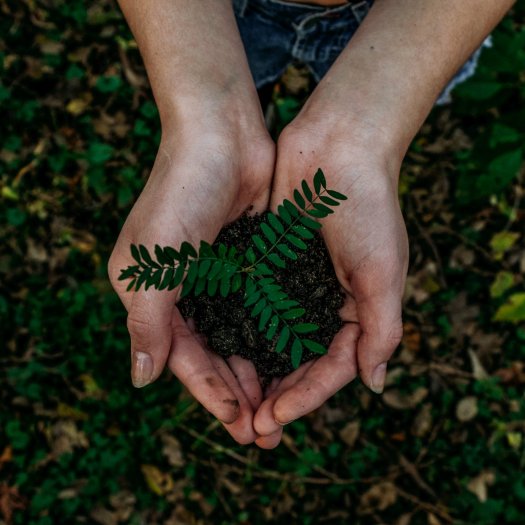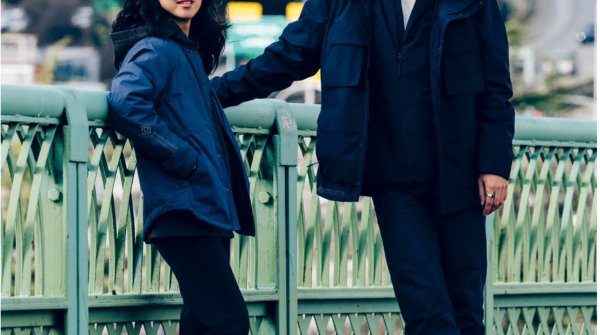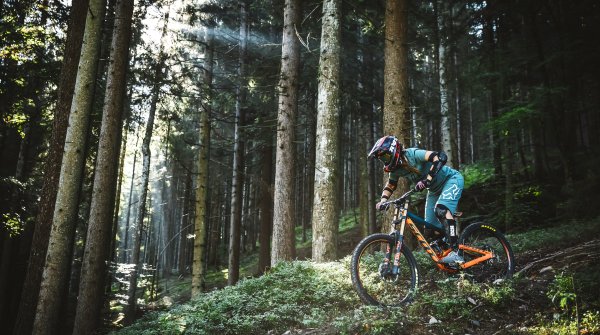According to the "Zukunftsinstitut", the neo-ecology megatrend reflects a new set of environmentally conscious values that extends into every area of our everyday lives. Whether purchasing decisions, social morals or corporate strategies: The sustainability paradigm is changing the behavior and perspectives of global society, culture and politics - and is fundamentally realigning corporate actions and the entire economic system. It describes the major process of social change toward a resource-efficient, sustainable economy. It is becoming increasingly clear that efficiency is the path to green prosperity and economic stability. In other words, quality instead of quantity.
Neo means new. According to the Duden dictionary, the term ecology comes from biology and originally referred to the science of the interrelationships between living beings and their environment as well as the science of the household of nature. Today we understand it rather as the totality of the interrelations between living beings and their environment as well as the undisturbed household of nature. However, neo-ecology goes much further - the megatrend combines ecology with economy.
1. humans re-integrate themselves into the ecosystem earth. We are neither destroyers nor saviors of the world, but part of the diverse, resilient, self-organizing system Earth.
2 Sustainability means smarter, not less. Neo-ecology focuses on the sustainable use of resources. Technological innovations play an important role in this. Green tech helps to overcome present and future challenges.
3. economic system becomes a value system. Instead of growth and profit maximization, tomorrow's economy focuses on sustainability, post-growth and the common good.
This is, of course, about the responsibility of companies towards the environment. But the consumption behavior of each individual is also changing, and companies must respond to this in order to remain competitive in the long term. According to the Zukunftsinstitut, one third of Germans already pay attention to sustainable products when buying clothing. Willingness to pay for environmentally friendly products has risen by more than five percentage points to 25.5 percent over the past five years. One in four Germans is therefore willing to spend more money.
While large, listed companies with more than 500 employees are obliged to provide information on environmental, social and employee issues in their management reports, it is a voluntary matter for all other companies. However, many experts already agree that sustainable production both helps the environment and increasingly leads to a competitive advantage.
Profit maximization at any price - this guiding principle is definitely a thing of the past. On the one hand, athletes expect functional products, but on the other hand, they should also be sustainable. For each individual manufacturer, this means that it is no longer just about quality control in the companies, but about checking the entire value chain for sustainability. Initiatives are also in demand, such as repair services for broken clothing or worn-out shoe soles.
"We are striving for global climate neutrality and want to manufacture our products predominantly from bio-based or recycled materials by 2024," promises Antje von Dewitz, CEO of Vaude. Despite, for example, producing softshell jackets and softshell pants from recycled PET bottles, the company is aware of the problem of microplastics. "As an outdoor brand, we have a particular problem: tiny fiber particles that detach from our products and are too small for normal filters in wastewater treatment plants, and thus end up in the oceans as microplastics," the sustainability report states. This is why Vaude initiated a major research project: From September 2017 to March 2021, Vaude was an active collaborative partner of "TextileMission".
At outdoor shoe manufacturer Meindl, the issue of sustainability has always been a high priority. "An important contribution from us, for example, is to improve adhesives in terms of their environmental friendliness. That means reducing where we can do without solvent-based adhesives," explains Managing Director Lukas Meindl. But, "For a mountain boot that has to be functional, that's not so easy." And that's why he also says: "The most sensible and sustainable thing is to wear a shoe for as long as possible: a mountain shoe will eventually become a garden shoe, serve as a bad-weather shoe." Quality over quantity - this is entirely in line with the neo-ecology megatrend.
The young start-up Vidar Sport goes one step further. "We believe that renewable, natural raw materials are the future. After all, recycling plastic is not the best solution, because microplastics still end up in the water," emphasizes founder Rouven Kneipp. He relies on TENCEL™ wood fibers, which offer good properties for sports and "are particularly environmentally friendly in production.
- ISPO awards
- Mountain sports
- Bike
- Design
- Retail
- Fitness
- Health
- ISPO Job Market
- ISPO Munich
- ISPO Shanghai
- Running
- Brands
- Sustainability
- Olympia
- OutDoor
- Promotion
- Sports Business
- ISPO Textrends
- Triathlon
- Water sports
- Winter sports
- eSports
- SportsTech
- OutDoor by ISPO
- Heroes
- Transformation
- Sport Fashion
- Urban Culture
- Challenges of a CEO
- Trade fairs
- Sports
- Find the Balance
- Product reviews
- Newsletter Exclusive Area
- Magazine







